Another Timbre TimHarrisonbre
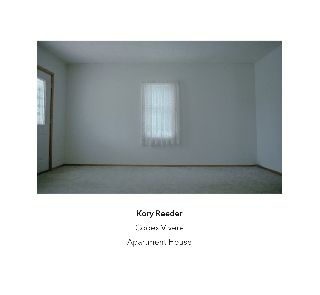
at194 Kory Reeder ‘Codex Vivere’ (2021)
Apartment House
Kerry Yong (piano) Mira Benjamin & Gordon MacKay (violins) Chihiro Ono (viola)
Anton Lukoszevieze (cello) Heather Roche (bass clarinet) Emma Williams (bass flute)
1 Intermezzo youtube extract
2 First Part
3 Pause: Field
4 Violin Concerto
5 Interlude: Essay
6 Piano Concerto
7 Pause: Plains
8 Second Part
9 Elegy
CD copies sold out, but downloads still available here
Interview with Kory Reeder
Before we talk about Codex Vivere, can you tell us a bit about your background: where do you come from, and how did you come to experimental music?
Originally I’m from Nebraska, but I’m currently based out of Denton, Texas.
I don’t remember the first time I wrote a song or anything, but I have distinct memories of being 8 or 9 years old and taking my dad’s guitar amps and pedals and just letting them feedback while playing around and twisting knobs. I’m sure it sounded more annoying than anything, but there’s probably something to that. I spent a long time in bands and the Nebraska DIY punk and hardcore scene, while at the same time playing double bass since I was 9 or 10 years old in orchestras; playing in jazz groups; wind and marching bands; musicals, etc. So I’ve always had a lot of music and a lot of different styles around me. As far as getting into experimental music specifically, I went through that well-known phase of being a young contrarian and actively sought out the weirdest and wildest things I could. Being the only kid with blue hair in a youth orchestra in rural Nebraska, hearing pieces like Threnody or Black Angels was pretty compelling and from there the internet was my guide. I didn’t really start writing “contemporary music” until my undergrad studying with Darleen (Cowles) Mitchell who opened me up to actually writing this music and really let me go unhinged with it. At the same time, I was playing in a touring hardcore band and always on the road, I was still playing in orchestras, etc. So I think all the dust just settled and this is what I came out really liking and wanting to do.
I first came across your music with your debut CD, which was a very strong release on the Wandelweiser label. Do you think of yourself as being in some way aligned with the Wandelweiser group of composers?
I think it depends on how you define the alignment. If we’re talking about the aesthetics, I think this is somewhat superficial. Of course I love the music and there is certainly a connection there, but I’m not so much interested in associating with any particular group based on sound and aesthetics alone (I honestly think a lot of Wandelweiser music pairs nicely with harsh noise as much as it does with early music). If we’re talking about the group of folks associated with Wandelweiser, then I think we’re on to something: I’ve met so many amazing people through the extended Wandelweiser network and that’s really indispensable to me. I honestly haven’t seen many Wandelweiser pieces performed in real life without somehow being involved in the production, so that bigger expanse of folks sharing music, the accessibility of the material online, seeing folks collaborating and myself getting to work with folks on other projects has been something really special. The word “community” can have such a corporate sound, but so many folks I’ve met through the Wandelweiser network have become real artistic comrades that it’s hard to think of a better term. So I’m happy to be somehow affiliated; having my scores available on the Wandelweiser page and opening up my work to folks who might stumble onto it and maybe get something out of it just feels like carrying on that thing that mattered so much to me.
A lot of your pieces have long durations: are you particularly drawn to long-form works, and if so, why?
I do like long pieces. Part of it is giving the music room to breathe and take its time, the other is the idea of giving a complete artistic statement. There’s also a question of what you mean by “long.” For some folks a 10-minute piece is a long piece. For pieces in my Grid Series there’s as much room and time to play as the players want so it’s situation-dependant. My longest piece A Timeshare is 9 hours, and I’m currently working on a 24-hour piece. In my opinion, a day is probably the longest you can go and still call it a comprehensible thing, so we’ll see how that goes and maybe I’m wrong about that but I’m excited to find out. You once joked “when God gave us CDs he had a point: 75 minutes of anything is enough” and I really like this idea. On the one hand there’s an upper-limit, but on the other this idea establishes what a “thing” might be. I’ve also heard a whole bunch of great music that’s only about a minute, so there’s a lot of ways at looking at the situation and a whole bunch of people much smarter than I have waxed-poetic on the perception and affect of time which I’m not brave enough to go into here.
In the cases of my more extreme stuff like A Timeshare, the duration was more about how we spend time together, and specifically how I spend musical time with the 4 friends on that recording and that’s more the point of the piece than the duration itself. Writing a ridiculously long piece is fun, but actually spending time with my friends and realizing it was much more valuable. The piece is just a part of that.
For Codex Vivere specifically, it was a matter of thinking about this whole project as a single “thing.” You and I had been talking about some pieces and landed on the idea of doing something new for a disc. Well, a disc has the 75-minute limit, so that’s the framework to start thinking about what a piece can be. I wasn’t particularly interested in doing a disc of unrelated chamber works or something, so the whole format or situation really informed what I wanted to do. It also took us about 9 hours to record Vivere, and although the final product is a 75-minute disc, that day we spent together was pretty great and just as artistically satisfying as a long-form performance or piece could be.
Did you have any specific aims or intentions when you started composing the piece?
The piece is part of a series of Codex pieces, the first is Codex Praxis, Vivre is the second, and Codex Symphonia is the third. Each of these pieces contains a loose narrative arch and I think about them as books in a way, and they all each take this idea in a different fashion. Codex Praxis is put together based on an amalgamation of liturgical drama, and bestiaries having been commissioned for a gallery opening of medieval illuminated manuscripts. Symphonia contains references to external musical works and is more autobiographical. Vivere was written through the lens of modern literature in which the “story” of the piece comes in two movements “II: First Part” and “VIII: Second Part.” However, the story is played out with an introduction, a very long series of diversions, and a somewhat fleeting apology at the end.
Additionally, the Codex series demonstrates an instance of “nested” series: each Codex work contains a movement that is a part of the Grid Series, for example.
I'm interested in exploring modes of creating. When writing a piece down or making something that uses a score, one of the most obvious of these modes is the notation. On the one hand, this is a tool for communication, but I think this is a rather unfortunate and often fetishized feature that too often turns the work into a noun or just a document. In many ways, I think this distracts from the point of music is; music is a verb, it’s a thing that is done. The notation is a means of accessing that thing, but we are given a choice to treat it as a mathematical formula, or an invitation to participate. I would much rather ask you to come with me and join me in the adventure of the music than always tell you what to do.
Here, we are beginning to ask questions on the nature of creation. How does one develop a technique that balances my selfish interests of aesthetic taste, and the desire to do a thing together? This isn’t a particularly unique question, and in many ways, the only answer to explore and to try and to fail and to adapt. Vivre uses several notational strategies (some movements are more explicate some more implicate), and each movement is an investigation into these different ways of navigating musical ideas and material through the lens of my aesthetic/formal interests and taste. But these are all verbs- points of action, a participatory way of life. This piece is at least a nudge to try; to find some beauty in the act of doing, and it is my hope that this piece, something as book or a story with characters, and scenes, and diversions, and digressions, may be a beautiful act itself.
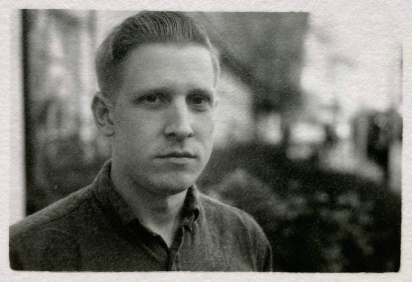
Kory Reeder
Photo: Anton Lukoszevieze
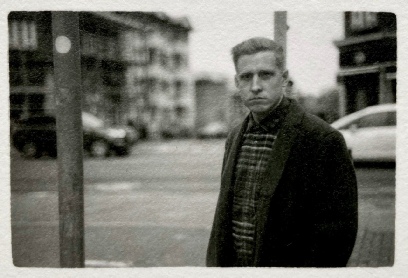
Kory Reeder
Photo: Anton Lukoszevieze
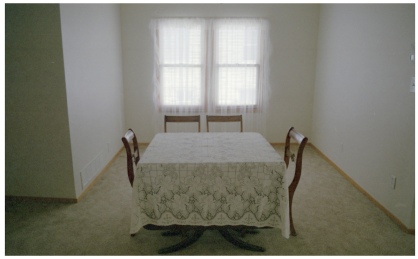
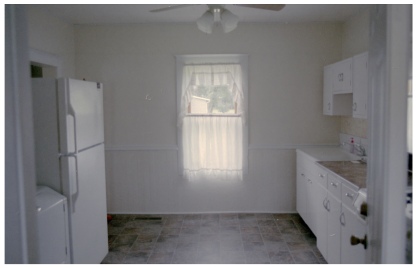
Photo by Kory Reeder
Photo by Kory Reeder